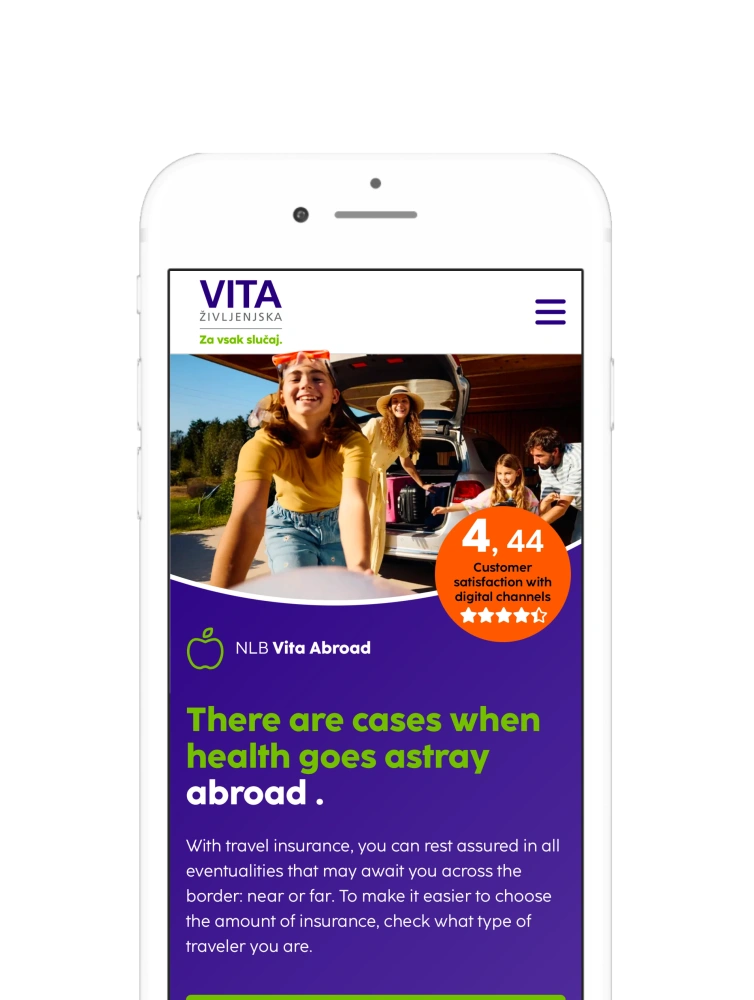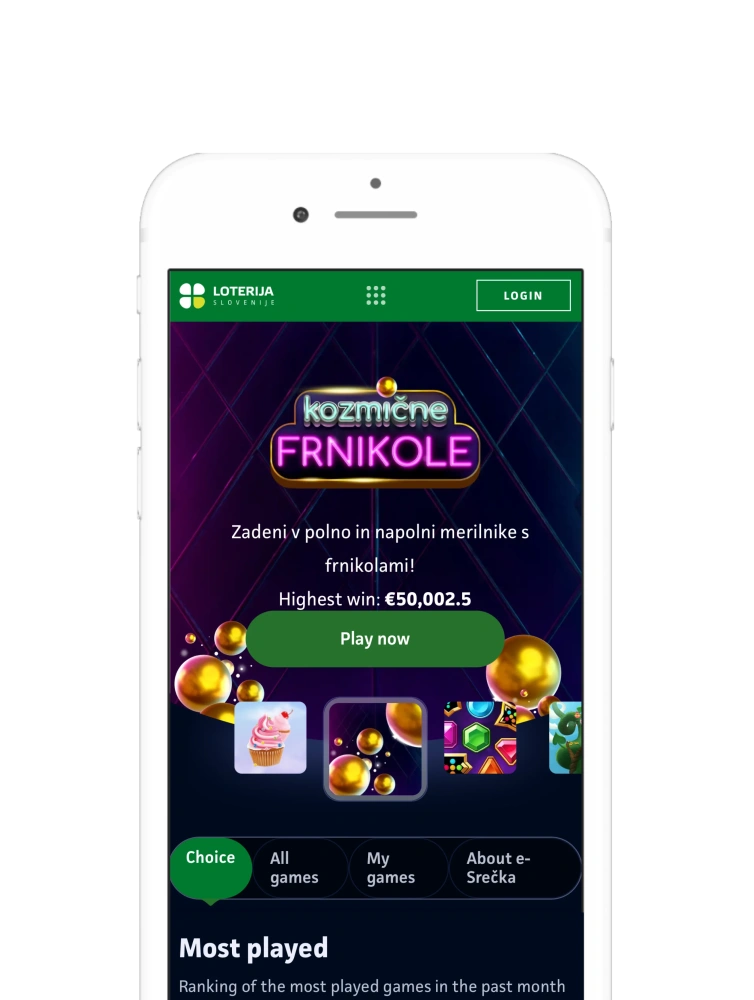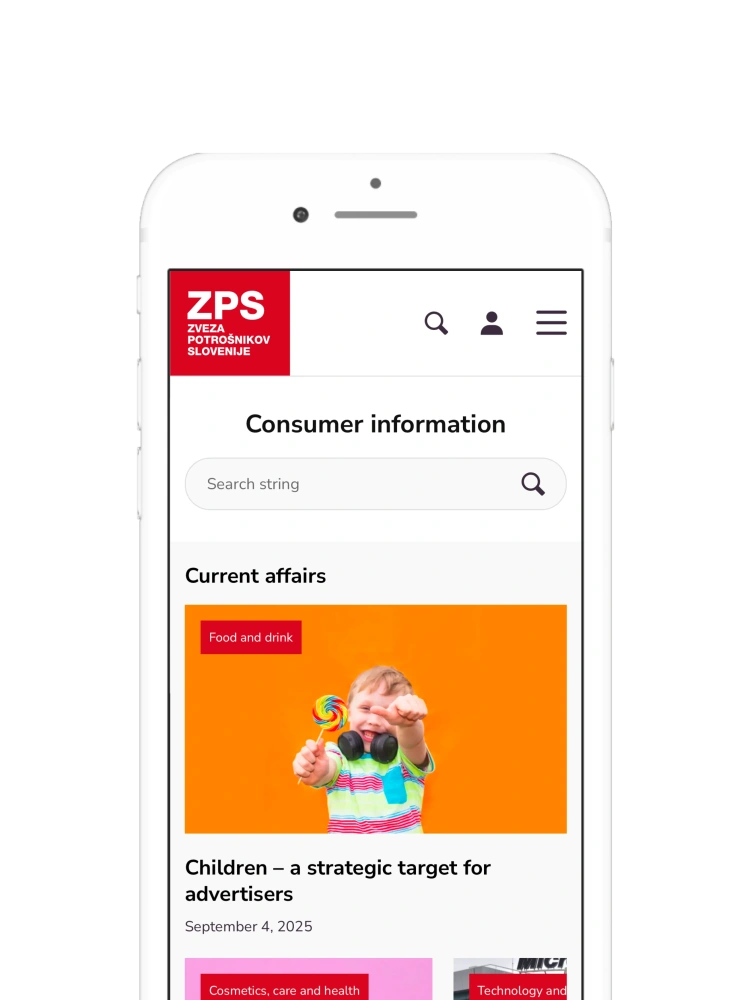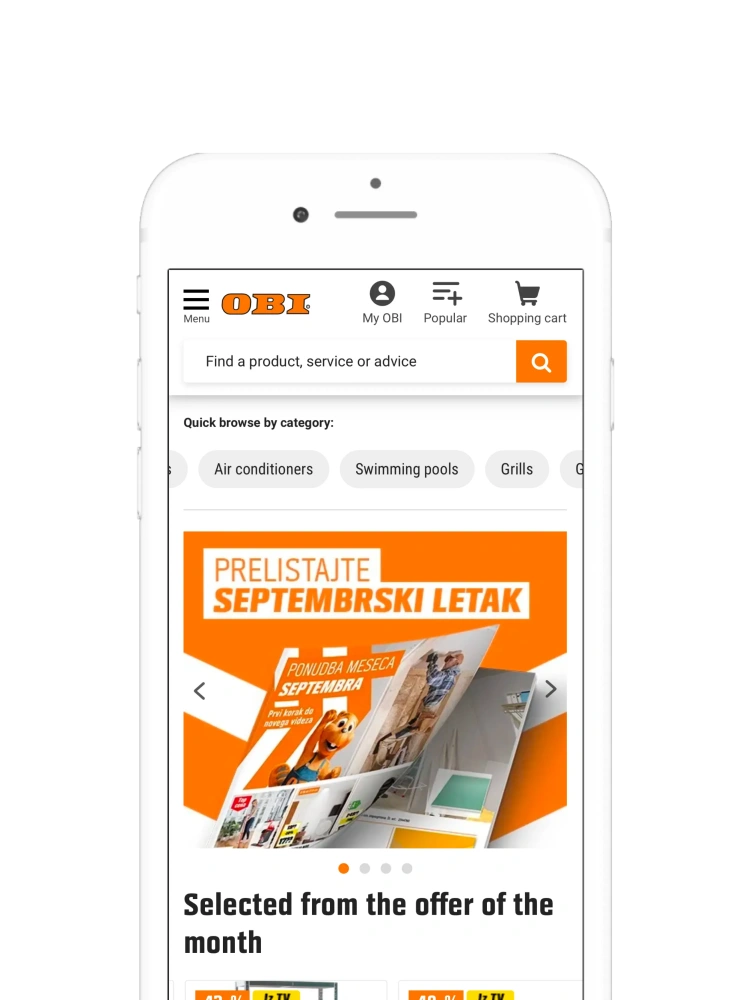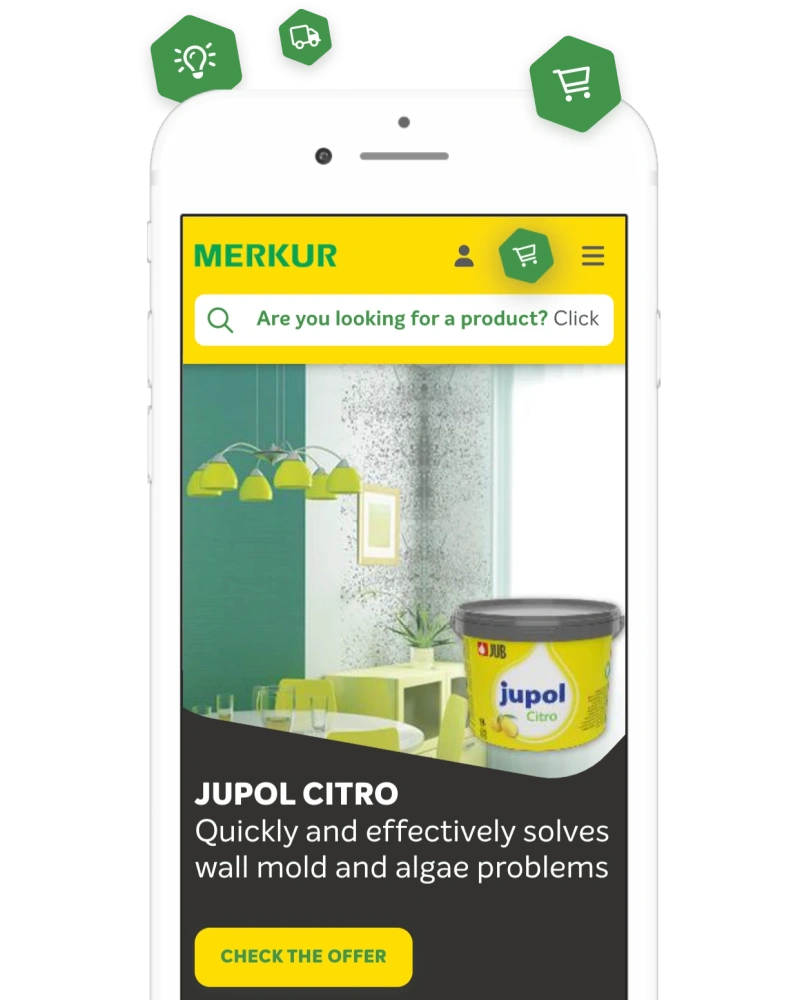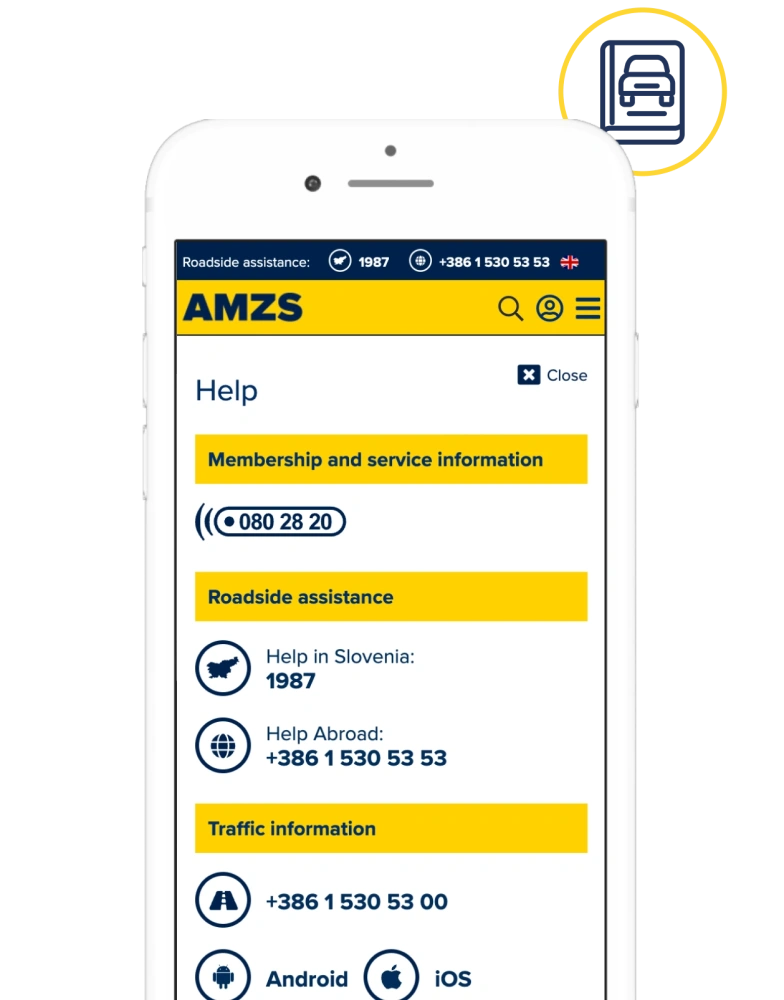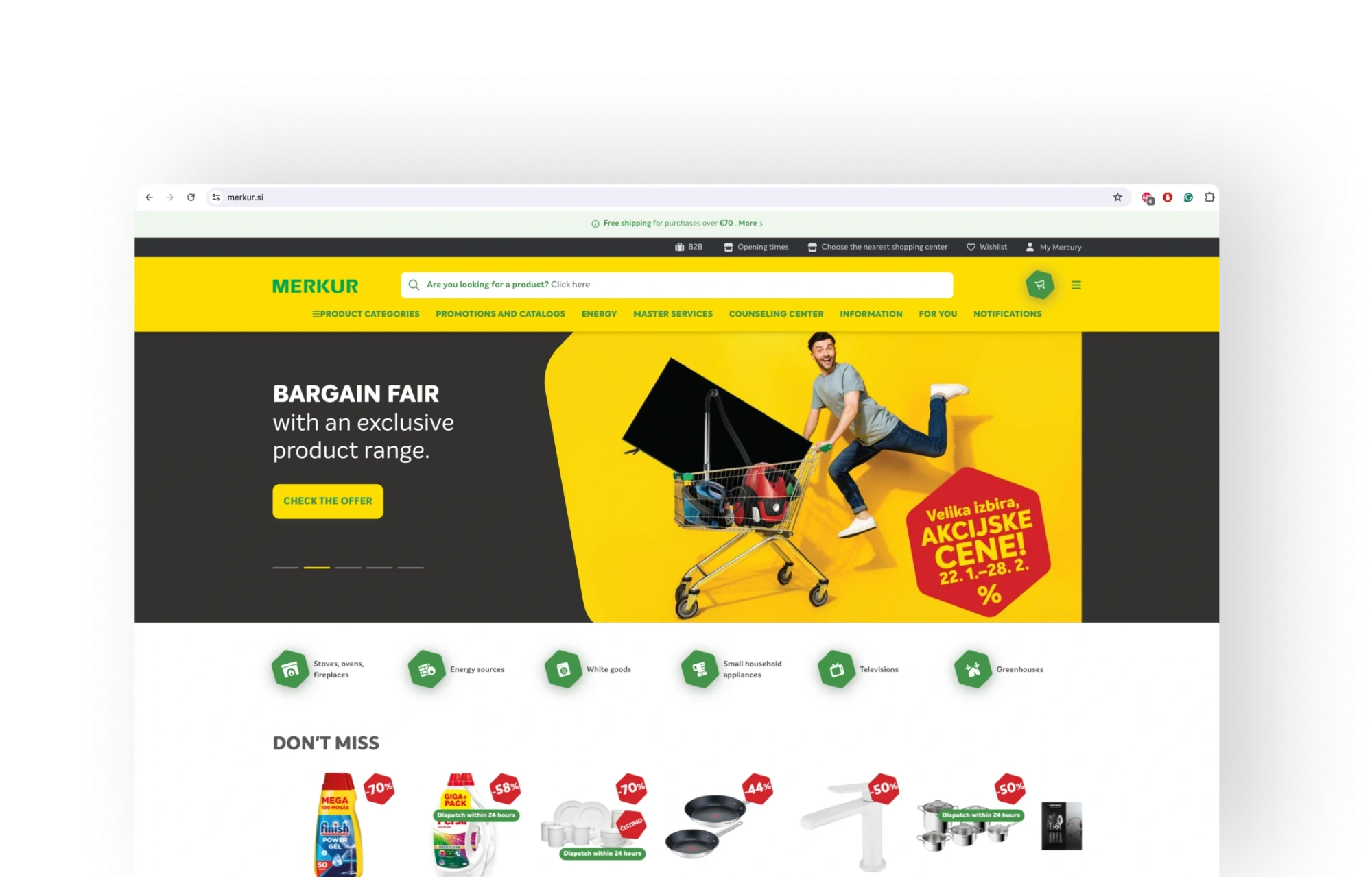

Meta descriptions might seem like just another detail in your website’s SEO strategy, but in reality, they play a crucial role in attracting clicks. While they don’t directly influence rankings on Google, they do act as a compelling “invitation” that encourages users to click on your link rather than a competitor’s, making them one of the most important elements on search engine result pages (SERPs).
One of our recent projects with Merkur’s online store showcases the game-changing potential of AI in optimizing meta descriptions. Within just a few days, we generated meta descriptions for an overwhelming 160,000 products. Here's a deep dive into the challenge, process, and results, and how you can achieve similar success in your own eCommerce business.

The Challenge
Merkur wasn’t happy with the quality of the meta descriptions on their e-commerce platform. And understandably so! Poorly written meta descriptions fail to engage users or highlight the product’s value, which directly affects click-through rates (CTR).
But for Merkur, the challenge wasn’t only about improving quality. The true hurdle was the sheer quantity. They had a staggering 160,000 products that required unique and captivating meta descriptions. For a task of this magnitude, manual copywriting methods were simply impractical. That’s where we stepped in—with AI.
Why Meta Descriptions Matter in e-commerce
Before we jump into the solution, it’s essential to understand why investing in meta descriptions is so valuable for e-commerce stores.
- Boost CTRs: Strong meta descriptions can significantly increase your click-through rate by making your listing more appealing and relevant
- Differentiate Your Brand: Compelling and concise descriptions help your store’s products stand out in a crowded marketplace.
- Guide User Expectations: Well-written meta descriptions provide users with a snapshot of what they can expect to find on your product page, setting realistic expectations and often reducing bounce rates.
- SEO-Specific Benefits: Although meta descriptions do not directly impact ranking, they influence indirect SEO factors, such as user interaction and dwell time.
The Solution
Designing high-quality meta descriptions for 160,000 products was no small feat. Manually creating unique and optimized descriptions would have taken months. However, with advanced AI tools, we reduced that timeline to just a few days. Here’s how we approached it step by step.
Leveraging AI for Scalability
For this project, we turned to GPT API, an advanced AI tool known for its natural language processing capabilities. However, even a powerful tool like GPT doesn’t magically create 160,000 perfect meta descriptions out of thin air. It required strategic planning and precise instructions.
Crafting the Right Prompt
The success of AI in generating accurate and effective meta descriptions relies on providing it with detailed prompts. We had to inform the model about the specific parameters it should consider when creating the text, such as:
- SEO Attributes: Optimal inclusion of target keywords to improve searchability.
- Product-Specific Details: Highlighting features, benefits, and categories for different product types.
- Character Limit: Meta descriptions are typically limited to 150–160 characters to fit neatly on search engine results pages (SERPs). Brevity was key.
- Exceptions and Rules: Handling unique cases or outliers in Merkur’s product assortment, such as items that require specialized language or are excluded in certain phrases.
AI isn’t one-size-fits-all. Each retailer has unique product categories, tone requirements, and exceptions, meaning templates had to be tailored to Merkur’s specific needs.
Iterative Optimization
Before generating all 160,000 descriptions, our SEO specialists and programmers worked together on multiple iterations of prompts, testing their accuracy and refining them. The process involved fine-tuning the AI’s outputs to align with Merkur’s brand voice and ensuring there were no oversights.
Results
After all iterations were completed, the final step involved automated implementation. Rather than waiting months for manual creation, the entire library of meta descriptions was ready in a matter of days. The new descriptions immediately contributed to improved CTRs, better user engagement, and consistent brand voice across thousands of product pages.
Why AI Makes Sense for Large-Scale Projects
Manual processes simply can’t match the speed and efficiency of AI when it comes to large-scale content generation. Here’s what makes AI such an invaluable tool for tasks like meta description optimization in eCommerce stores:
- Speed: While manual copywriters can handle a few hundred descriptions in weeks, AI can scale that output to thousands in days or even hours.
- Consistency: AI ensures a unified tone and format across all product pages, eliminating inconsistencies that can arise from manual editing.
- Customizability: By setting rules and parameters, eCommerce managers can tailor AI outputs to align with their specific needs, from character limits to SEO best practices.
How You Can Use AI for Your eCommerce Store
If your online store is struggling to scale meta descriptions or other forms of content, AI can help. Here’s what you need to do to get started:
- Assess Your Content Needs: Identify which product categories or pages lack optimized meta descriptions.
- Choose the Right AI Tool: Tools like GPT API are excellent for large-scale language processing, but you’ll need to pair them with a skilled developer or SEO specialist to customize outputs.
- Prepare Targeted Prompts: Think of prompts as the instructions you provide to the AI. The more detailed and specific they are, the better your results will be.
- Test and Refine: Start small with a batch of descriptions, assess their quality, and tweak your prompts as needed before scaling up.
- Implement the Descriptions Quickly: Use automated tools to apply the outputs efficiently across your site.
Scale Quickly Without Compromising Quality
Generating high-quality meta descriptions on a large scale doesn’t have to be an overwhelming challenge. By leveraging advanced AI technology and strategic guidance, tasks that once seemed impossible—like producing 160,000 engaging product descriptions in a matter of days—become entirely achievable.
Don’t wait months to optimize your e-commerce site. Whether your store has 100, 1,000, or 100,000 products, AI-powered solutions like ours can help you scale while maintaining quality.
Interested in learning more? Reach out to the team at Creatim to elevate your online store to the next level.
Ready to Transform Your Business?
When off-the-shelf solutions don’t cut it, Creatim can help. Let’s turn your challenges into a competitive advantage!
Contact us


